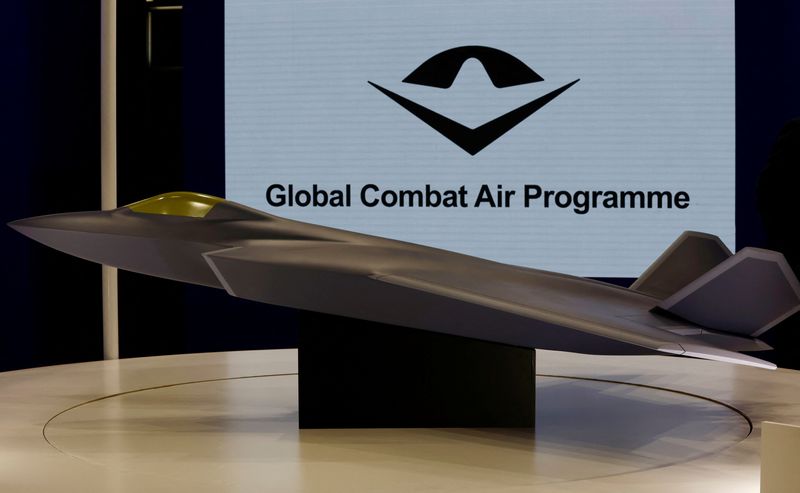By Tim Kelly
TOKYO (Reuters) - Japan's government on Tuesday relaxed military equipment export restrictions, the second change in less than four months, to allow future overseas sales of an advanced jet fighter it is developing with Britain and Italy.
The rule change applies only to Cabinet-approved jet fighter exports and will be limited to countries - currently 15 - that have defence equipment transfer agreements with Tokyo committing them to settle international disputes peacefully in accordance with the United Nations charter, the government said.
Exports to countries involved in conflicts will remain off limits, it added.
Although limited in scope, the change, which comes after months of political wrangling between the ruling Liberal Democratic Party and coalition partner Komeito, represents the biggest shift in Japan's military export policy in a decade, removing a potential obstacle that could have disrupted the jet fighter programme.
Under that Global Combat Air Programme (GCAP), Japan, Britain and Italy last year established a joint organisation and industry group led by Britain's BAE Systems PLC (LON:BAES), Japan's Mitsubishi Heavy Industries and Italy's Leonardo to develop and deploy the advanced fighter by the middle of the next decade.
Any Japanese export ban that halted overseas sales and limited production numbers could have made the aircraft unaffordable because development expenses would have to be spread across a smaller fleet.

The rule change is nonetheless controversial in Japan because the country still adheres to a war-renouncing constitution adopted after its defeat in World War Two.
It also comes after Japanese Prime Minister Fumio Kishida's government in December made a separate export rule tweak to permit the transfer of defence equipment built under licence to the countries holding the designs. It will allow Japan to ship Patriot air-defence missiles to the U.S.
